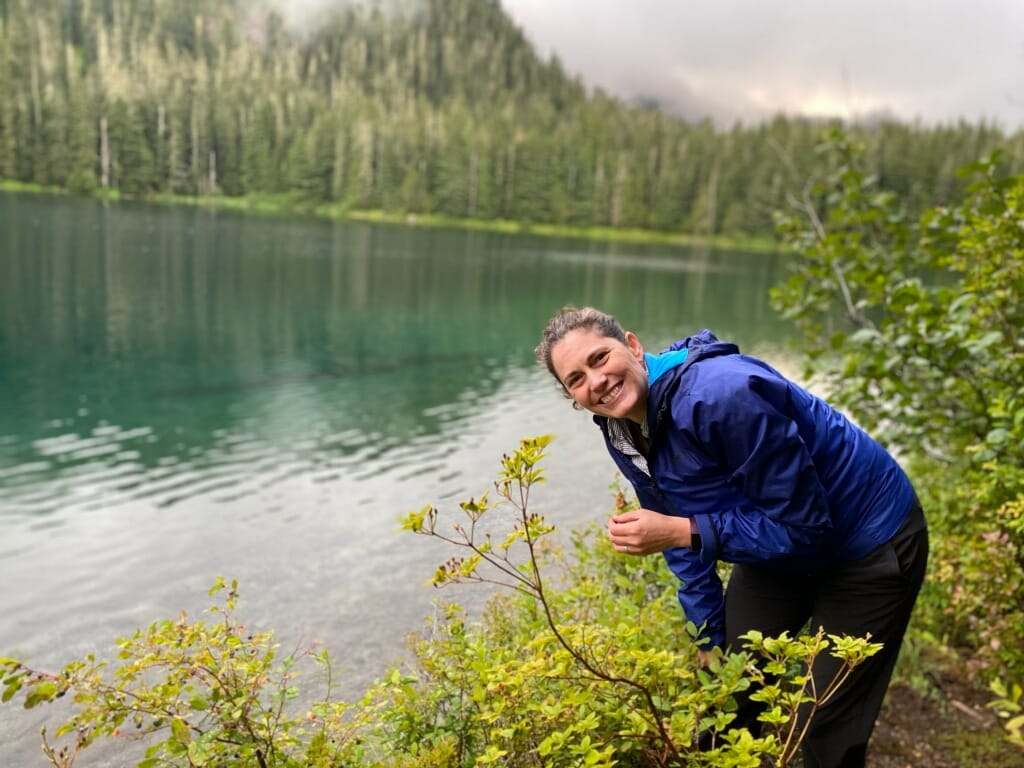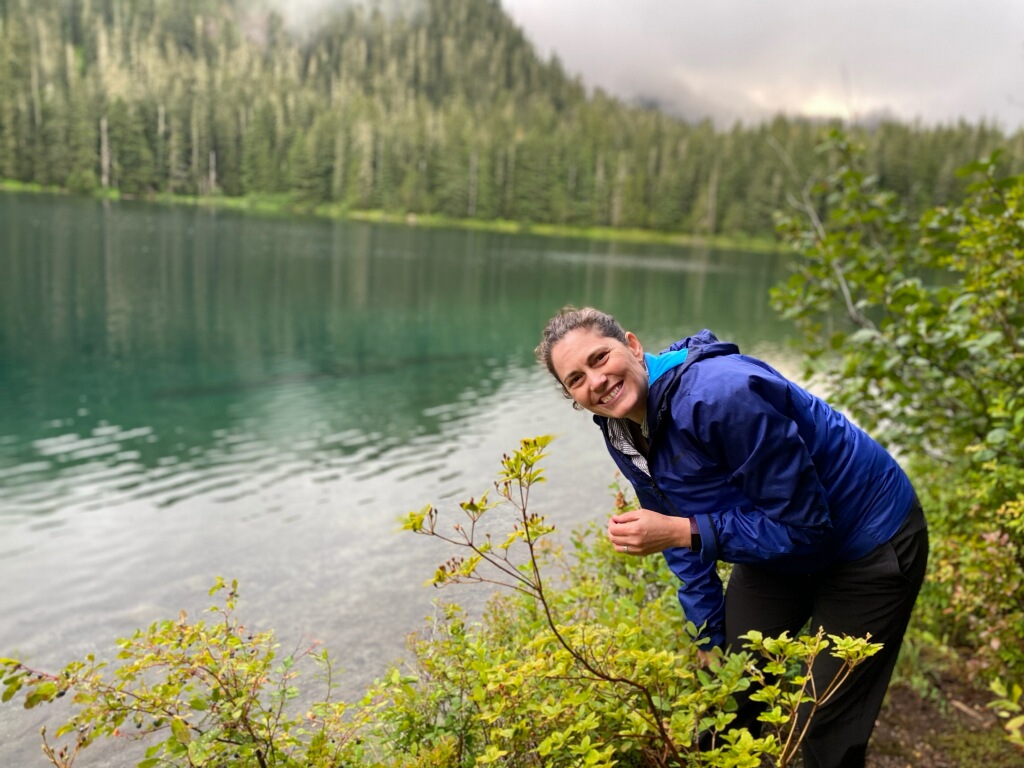My Story

Finding Mindful Now:
Dedicated to Your Emotional Capacity
Welcome to Finding Mindful Now (FMN), founded by Tia H. Ho, PhD. Finding Mindful Now’s mission is to support people in reclaiming their growth, emotional capacity, and resiliency processes through the intentional use of attention without judgment - mindfulness.
FMN's offerings are dedicated to people seeing that they can move through life's challenges without being afraid to feel. We learned to limit ourselves from change because we fear feeling stress, anxiety, or pain that is inevitable with growth. Some of us spend a high proportion of time in analysis paralysis without realizing that thinking is not where change comes from. Awareness is the source of all change.
Adversity does not determine destiny. Everyone is innately resilient. Resilience does not mean lacking injury, pain, or illness. And it doesn't excuse decision makers from burdening communities. It means that recovery can move us forward and that capacity for adapting and healing continues throughout life. And we need policies and systems that support our humanity rather than diminishing it.
Mindfulness, the intentional directing of attention without judgment, is a pathway to expanded awareness which makes lasting change possible. If you are focused on any societal transformation that is connected to various ways oppression shows up including racism, sexism, abelism, homophobia, climate destruction and abuse, self-awareness is as crucial as policy change. If you have a contemplative practice and you are not engaged in actively reimagining and remaking the world we currently live in then I invite you to explore if you are using mindfulness as an escape, rather than a tool for transformation. If you are engaged in policy and system change without a self-growth practice I invite you to explore how your capacity can expand with self liberation.
As a licensed and bonded outdoor guiding firm FMN provides guided nature-based mindfulness walks, forest bathing experiences, and can design guided trips related to factors that shape our health. I also provide community health technical advising to government and non-profit organizations in the community development, education, and public health fields. FMN's Oregon Outfitter Guide number is 2583. FMN's Emerging Small Business (ESB) and Women Business Enterprise (WBE) certification number in Oregon is 12939.
Why Learn With Me?
My name is Tia H. Ho, PhD, MST and I use she/they pronouns (why pronouns are important). I believe healing is built into who we are and that everyone's path is different.
I launched this business as my way of advocating for innate capacity. As a complex trauma survivor I felt that the way the medical, self-help, and some psychotherapy traditions viewed health as focused on people being flawed and teaching them ways to "fix" themselves missed the mark. Often these well intentioned approaches don't reveal the built-in intelligence and innate capacity everyone has, nor do they question the settings that condition our responses. They also create an expectation that emotions and thoughts are controllable, in fact that it's a worthy goal. People are labeled for what isn't working without recognizing the larger whole. We live in societies where policies in education, housing, the economy, health care, and the carceral system convey a message that the system's failings (lack of a well paying job, lack of health care, lack of adequate housing, dehumanization) are primarily the individual's fault. This social conditioning makes seeing our innate wholeness even more difficult.
As a community health researcher I studied the health equity implications of policies that affect where we live, learn, work, play and pray such as food access, education, transportation, and housing. In that role I learned that the number of adverse childhood experience categories in my history (ACE categories include abuse, neglect, household dysfunction, community violence and more) is statistically associated with a higher risk of dying 20 years earlier than someone without these exposures or without healing supports. People with high levels of unbuffered childhood trauma, with less healing supports, are more likely to experience heart disease, cancer, addictions, and shorter life spans (see more here). Supports in the form of positive childhood experiences can buffer against the negative effects of ACEs. I sought understanding of how my highly sensitive nervous system functions through talk and body therapists and then in the field of somatics. In the meantime I cultivated a spiritual path that started with sitting meditation and became more integrated. I wanted to understand the possibilities to move beyond just coping with negative conditioning to growing out of it.

"I used to believe that mental health challenges meant something was wrong with me...until I realized how the brain-body system works. Our innate resilience surviving and thriving is why our body can be so sensitive for a long time after experiencing trauma. Learning to understand, value, and support feelings and sensations when they emerge has made a big difference for me. While I experience emotions from stressful thinking daily, and expect trauma activation throughout life - I understand it now. I feel less fear of experiencing these nervous system activations (e.g. anxiety, hypervigilance, etc.) that brings a mental freedom I didn't think was possible." - Tia
Influences
You can see the breadth of projects I've worked on in my LinkedIn profile: Tia H. Ho. My adult life has involved weaving facilitator, learner, educator and mentor roles together. I have a Bachelor's in Biology, a Masters in Science Teaching, and a PhD in Urban Studies focused on Community Development and Community Health. Mentors that most influenced my understanding of the scientific process of inquiry, facilitation, and systems approaches for community health include Dr. Paulette Bierzychudek, Dr. Linda George, Dr. Stephanie Farquhar, and Dr. Connie Ozawa.
I began cultivating restorative approaches at the age of 16 in the midst of surviving abuse and poverty. My desire to feel better launched a life-long path of exploring multiple ways to support a sensitive brain-body human system.
I continue to investigate how stress physiology, brain science, resilience, and mindfulness are part of healing, supportive resources, and prevention of longer-term harm through on going professional development and training. I completed the Embody Lab's Integrative Somatic Trauma Therapy Certificate Program in January of 2023. Practitioners and researchers whose work has influenced my understanding of our bodily functioning include Dr. Lisa Feldman Barrett, Babette Rothschild, Dr. Lewis Mehl-Madrona, Nkem Ndefo, and Dr. Christine Bethell. This exploration reveals how supporting our nervous system connects to wisdom traditions that modern society often drops.
I've spent more than 20 years working with a meditation practice. Many teachers have influenced my approach to applied mindfulness, most especially the more than human plant and animal mentors. People and organizations that have influenced me include Mindful Schools courses for educators, adrienne maree brown's social justice organizing work, Brené Brown's shame research, Kristen Neff's work on self compassion, john a powell's approach to belonging, Dr. Shawn Ginright's heart centering healing, Irene Bailey's approach to forest therapy, my therapist Bonnie Singman, my coach Clare Dimond's approach to inquiring into the identity, Chris Drake's emphasis on consistent meditation practice, and Martha Beck's change process. I have six years' experience integrating sensory-focused mindfulness into my life "off the cushion". I've also acquired an extensive resilience toolkit from my life long process (not done yet) of healing from complex trauma.
MY VALUES
I aim for using a liberatory equity lens into Finding Mindful Now's approach. I use this wider lens because societal conditioning and institutional structures oppress people in multiple ways at the intersection of identities. If you want to stay in denial of systemic oppression, or are unwilling to acknowledge and repair the harm the dominant majority groups continue to impart on Black, Brown, Indigenous, Disabled, and LGBTQ2S communities - we are not a good match. I am committed to being the change I want to see in the world. I recognize that I make mistakes and want to learn from them and do better. I have people in my life who hold me accountable. This means I actively investigate the way my actions, or lack of them, may have harmful impact - including what I say or do, or not say and not do. I continue to grow and learn alongside people I work with.
I am honored to provide a limited number of pro-bono mindfulness walks and workshops as a thank you to non-profit and volunteer organizations investing in health equity, climate justice, outdoor access, and community building work. A few organizations I have volunteered for, or contributed to, include People of Color Outdoors, Center for Diversity in the Environment, Rewild Portland, Bird Alliance of Oregon, Brown Hope, and ParKour Visions. I offer scholarships to my courses and walks, please email for a form if there isn't one up at info@findingmindfulnow.com. As part of giving back to my communities, FMN also makes three financial donations to a rotating list of organizations each year from this business beyond what I do as an individual.
